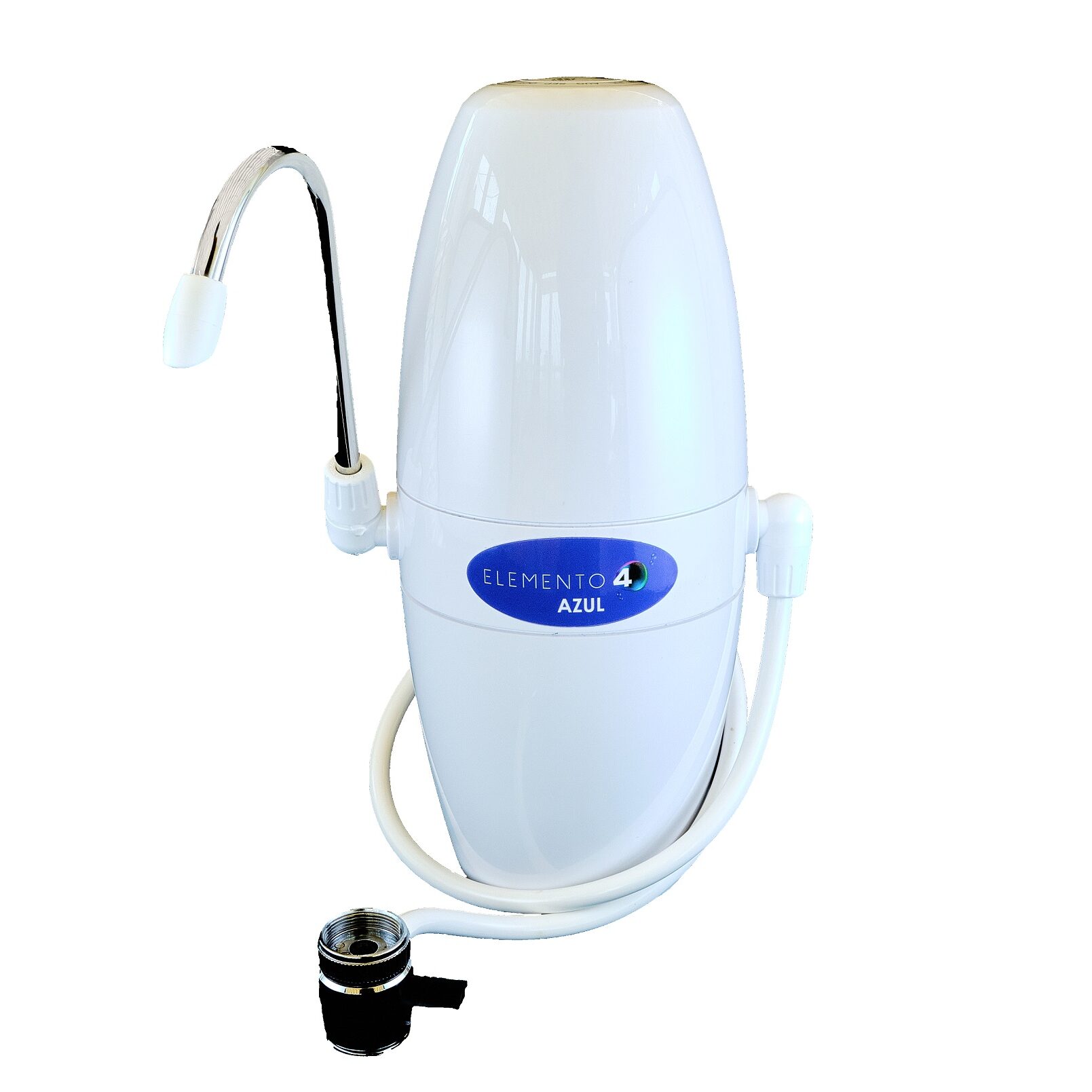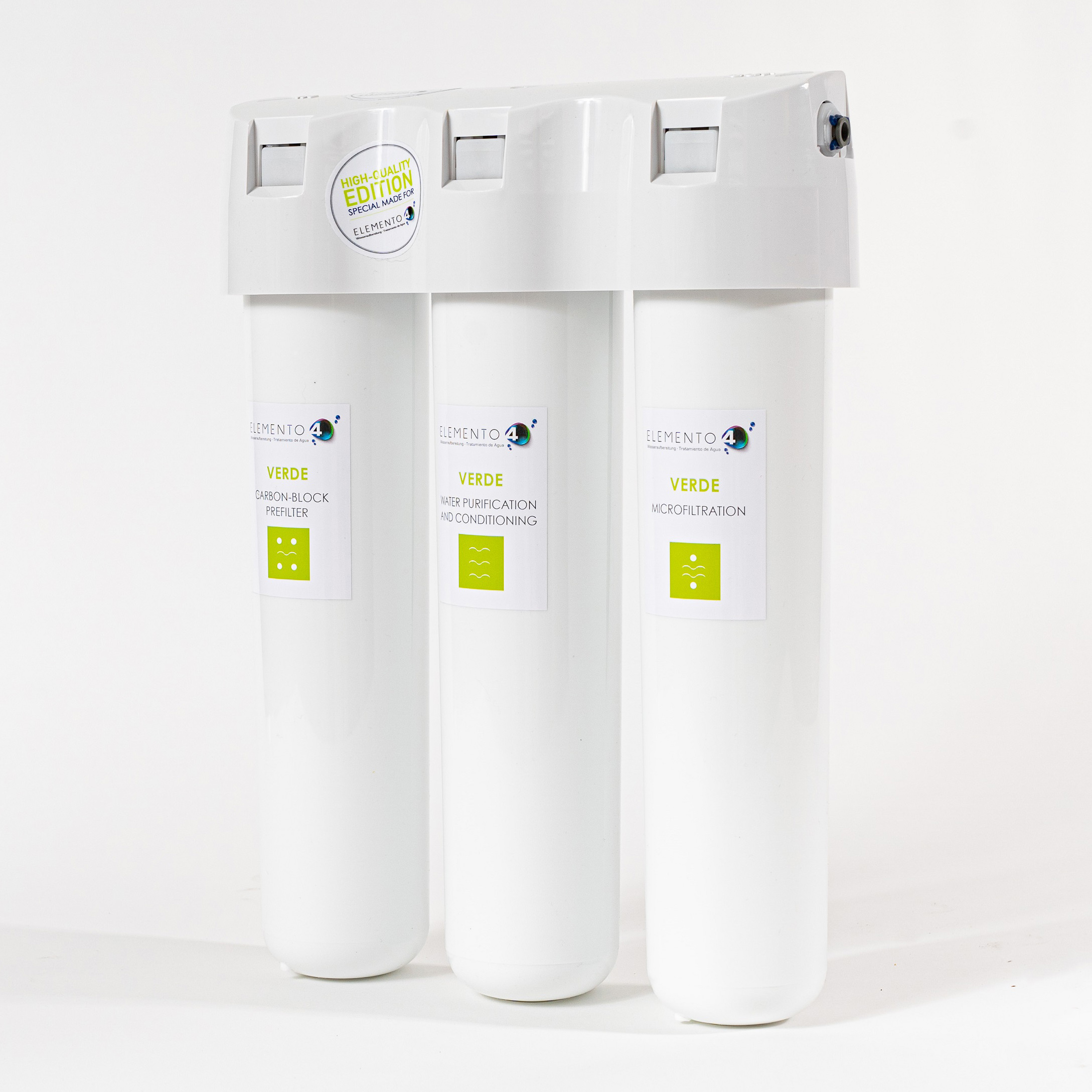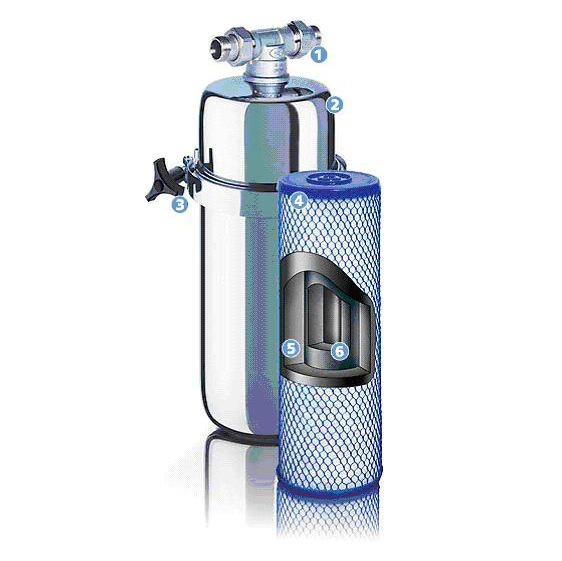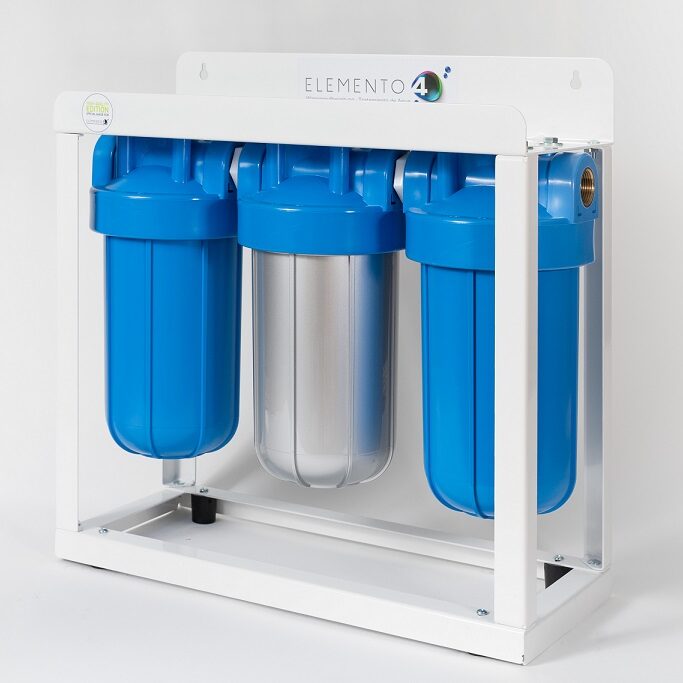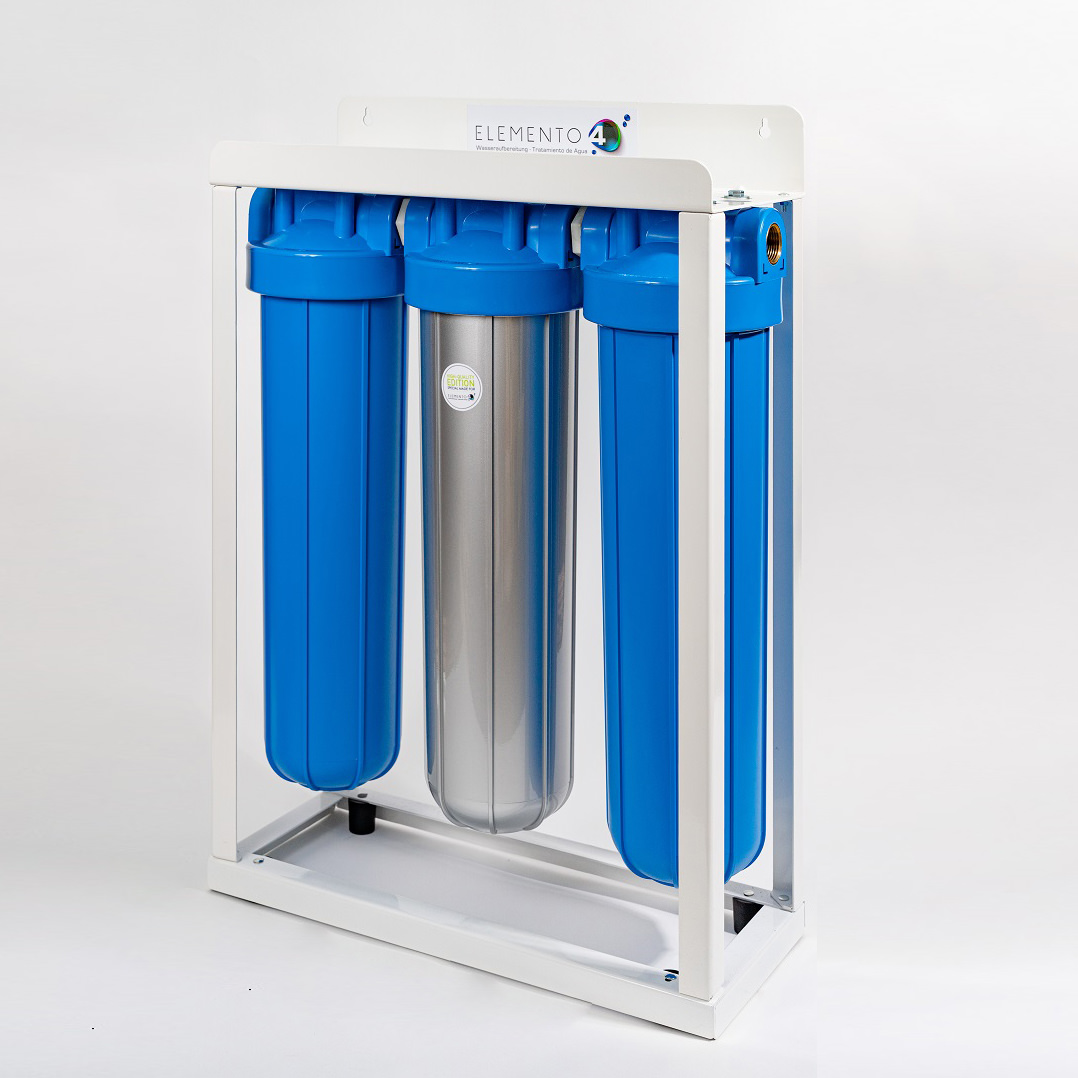Elemento 4 AGUA
Clean water for everyone!
The products in our AGUA series each function according to a similar principle and differ only in their size and application goals.
With a choice of five different models, you are sure to find the right system for your needs.
From plug-and-play table-top filters to whole-house systems: our AGUA series can be correctly dimensioned for all requirements.
What would you like?
Only the best
Numerous patents ensure safe drinking water enjoyment. These AGUA filters do not produce waste water and do not require electricity. With a maximum of efficiency, you get water of spring water quality. Vital minerals such as calcium, magnesium or sodium are retained and are part of the good, lively taste.
AGUA in keywords:
- Made in EU
- Quality control at all stages of production
- 70 + patents that represent a scientific discovery or are an invention that increases the effectiveness of your water filters
- Continuous monitoring by research centre of acquired materials for example plastics, activated carbon and resins
- Only the best, international suppliers (such as BASF, John Guest, Mitsubishi, Purolite)
- Annual certification according to ISO 9001 standard
- Award, for example, with the NSF and LGA certificate
Carbon filter technology
Activated carbon is a very fine-pored natural material with a very large inner surface area. A small grain with a diameter of only 0.1mm can have an outer and inner surface area of several square metres. This makes activated carbon very good at absorbing substances from the water that flow through it.
The inner surface is fabulously large. This means that four grams of the filter substance can cover the area of a football field. This is naturally contrasted by a very low density.
The individual pores are further differentiated according to their sizes into the three classes micropores, mesopores and macropores The differences are in the range of nanomillimetres.
The pollutants in the water are now bound by the carbon filter. This is done by mechanically stopping dirt particles and the adhesion and absorption of the smallest components such as viruses, bacteria, mould spores and toxic inorganic substances, which the carbon filter binds through the cluster structure of its molecules.
Enormous advantages: The process is purely chemical-physical and does not require any separate energy input, even at colder temperatures (the water only has to remain liquid). Only the water pressure should be reasonably constant, as is normally the case in the household.
KDF filter systems
These consist of high-purity, granulated copper and zinc alloys that treat and purify the water using an electrochemical reaction (based on the principle of the “redox reaction”). During this oxidation-reduction process, substances and impurities that are harmful to humans are converted into harmless substances.
Copper and zinc are the preferred metals of a KDF alloy, and are particularly suitable for the removal of inorganic impurities. For example, free chlorine (which affects health) is converted into harmless, water-soluble chloride.
In this way, chloramines, bacteria, fungi, humus, algae, hydrogen sulphide and microorganisms are also removed. Heavy metals (lead, mercury, iron) that react with the alloy of the filter surface are also removed from the water.
Advantages of KDF filter technology
- Effective removal of chlorine, converting free chlorine (can cause allergies) into a form of less active and harmless chlorine.
- Fungi and algae are removed, and bacterial growth in the filter is controlled
- These filters are reliable in removing cadmium, aluminium, hydrogen sulphide, iron, arsenic, lead, mercury and other inorganic compounds.
- KDF filters are a better choice than ion exchangers if the water hardness is within a certain range.
- KDF filters remove impurities even from hot water, which makes them ideal for showering or bathing

